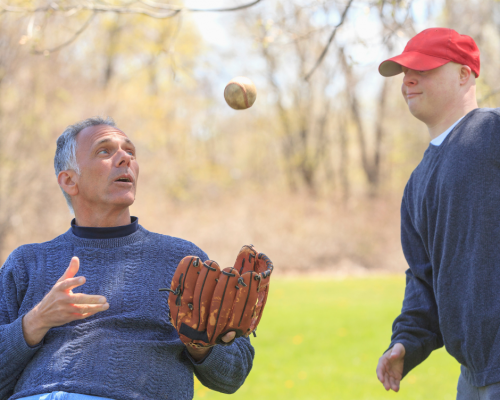Aging with a Spinal Cord Injury: What Can You Expect?

If you’re one of the 86,000 Canadians who live with a spinal cord injury, odds are good you can expect to see your senior years. Life expectancy after SCI rose steadily after the second world war, as medical breakthroughs and a growing body of knowledge helped people start living longer and longer with their injuries. This rise levelled off around the end of the century, and for a while there wasn’t much more change. But a British study that tracked more than 5,000 people over seven decades found that, since 2010, life expectancy seemed to be inching up again – higher than it’s ever been.
That’s great news. But it also means we’re in relatively uncharted territory, as more people than ever before are aging with their spinal cord injury. A lot has been discovered, but there’s still more to learn.
We do now know that aging is quite different when you have a spinal cord injury. For one thing, many of the changes that everyone faces more frequently as they advance in years – thinning bones, muscle loss, cardiovascular disease, diabetes risk – appear to develop earlier in people with SCI. In fact, new evidence published in late 2020 shows that even the brain appears to age faster, with subtle cognitive changes that are normally expected in people much older.
At the same time, some of your usual health risks, the ones you’ve been accustomed to managing for years, may also begin to shift with age. You may need to start finding new approaches for looking after yourself, instead of relying on what’s always worked in the past.
For example, everyone’s skin becomes thinner and less elastic as they age, whether or not they have an SCI. But for you, that might mean you’re now more likely to develop pressure sores, or they’re trickier to heal. Everyone in the general population is at a higher risk of heart disease as they get older. That risk may be higher if you aren’t able to be very physically active. And everyone’s immune system becomes a bit weaker over time. You might have a harder time fighting off infections than you did before.
But lifestyle choices you’ve been making up to now – or even start making going forward – can and will pay off when you’re older. All those things that help the health of people without disabilities will give you benefits as well. These include eating a healthy, balanced diet, keeping your weight under control, avoiding smoking or excessive drinking, getting all vaccinations that are available to you, staying hydrated, and getting physical exercise if you can.
You can also consider making some changes in the way you manage your disability that will make the aging process easier and lower-risk in coming years. For example, you might decide to install a ceiling lift to make transfers easier on your joints. You might buy a home blood-pressure monitor, so you can start keeping an eye on your measurements. That way, you’ll be in a position to treat any new concerns before they cause obvious symptoms. You might start checking your skin more regularly than in the past, so you can deal with the warning signs of a pressure sore before it gets to a more problematic stage. You even might decide to avoid a social gathering when someone has a cold (yes, even if they’ve tested negative for COVID!). If you haven’t been in the habit of getting your annual flu shot before, you could change that now.
There’s something else positive to keep in mind. New assistive technologies, breakthrough treatments and research insights are coming out all the time. Many of these may well end up helping you enjoy a more comfortable, healthier older age.
One more thing to remind yourself: Ever since your injury, you’ve been all-too familiar with adapting to new circumstances. For certain, those learned skills will continue to serve you well as you encounter changes and challenges on the road ahead.
To find out more about blogger Lisa Bendall, you can visit: /our-bloggers
